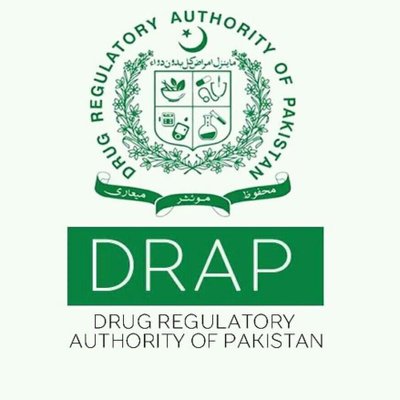The new article describes in detail the aspects related to the documents the authority expects the applicant to submit concerning the clinical trials.

Table of Contents
The Drug Regulatory Authority of Pakistan (DRAP), a country’s regulatory agency in the sphere of healthcare products, has published a guidance document dedicated to applications for clinical trials. The document is intended to provide additional clarifications regarding the applicable regulatory requirements, as well as recommendations to be taken into consideration by study sponsors. At the same time, provisions of the guidance are non-binding, and in case of any discrepancies with the respective provisions of the underlying legislation, the latter should prevail. The authority also reserves the right to make changes to the guidance and recommendations contained therein, should it be reasonably necessary to reflect the respective changes to the applicable regulations. The scope of the guidance covers, inter alia, the documents to be submitted by the applicant.
Documentation: Key Points
According to the guidance, essential documents are those documents that individually and collectively permit evaluation of the conduct of a trial and the quality of the data produced; these documents serve to demonstrate the compliance of the investigator, sponsor and monitor with the standards of Good Clinical Practice and with all applicable regulatory requirements.
Furthermore, the authority states that documentation related to the trial could be useful in the course of a trial itself. For instance, it could be subject to assessment by the internal audit function of the party responsible for the trial, as well as by the respective authority when validating the reliability of data collected in the course of a trial.
As explained by the DRAP, all the documents related to a clinical trial could be divided into 3 groups depending on the particular stage when they are generated, namely:
- Before the clinical phase of the trial commences;
- During the clinical conduct of the trial, and
- After completion or termination of the trial.
The authority further describes each of the documents in detail and outlines the key points to be considered by a study sponsor in this respect. It is also important to mention that some of the documents could be combined, provided all the necessary information is identifiable.
The scope of the guidance also covers the aspects related to the trial master files. As explained by the authority, they should be established by both investigator and sponsor. Both of them would be subject to review by a monitor before closing the trial.
The authority additionally emphasizes that any or all of the documents addressed in this guideline may be subject to, and should be available for, an audit by the sponsor’s auditor and inspection by the regulatory authority(ies).
In terms of record-keeping, the parties involved in a trial are obliged to store properly all the documents related to the study to ensure their availability upon request. The way they are being stored should allow their identification and tracking of the version history, as well as search and retrieval.
It is important to mention that depending on the complexity of the matter and the importance of specific documents, they could be either supplemented or reduced. The authority also states that the study sponsor should not be the only party having full control over the trial data – the investigator should have access and control as well. Furthermore, it is stated that the investigator should have control over the most important documents throughout all the stages of a trial.
It is also allowed to use certified copies instead of original documents, should it be reasonably necessary.

Before the Clinical Phase
First of all, the guidance outlines the scope of documents related to the planning stage which lasts before the clinical phase. According to the guidance, the documents related to this stage include, inter alia, the following ones:
- Investigator’s brochure – the document intended to document that relevant and current scientific information about the investigational product has been provided to the investigator.
- Signed protocol and amendments, and sample case report form – to document investigator and sponsor agreement to the protocol/amendment(s) and CRF.
- Signed agreements between the parties involved.
- Dated, documented approval/favorable opinion of institutional review board/independent ethics committee of the main documents including the study protocol, informed consent form, advertisement, and other important documents.
- Regulatory authority(ies) authorization/approval notification of protocol.
- Document confirming qualification and experience of investigators participating in a study.
- Samples of labeling to be used for the product are subject to investigation.
During the Clinical Trial
The second set of the documents described in the guidance should be generated in the course of a trial to ensure that all the information collected during the trial is duly recorded and documented. These documents include, inter alia, revisions to the main documents, such as the investigator’s brochure, protocol, informed consent, or advertisement. Apart from this, this category covers the documents related to the new investigators engaged, as well as updates and changes to the technical procedures/tests, and also documentation related to shipments.
After Completion or Termination
The third category of documents covers the ones to be created after completion or termination of the clinical trial. According to the guidance, at this stage, the documents covered by the two categories described hereinabove should be supplemented with such documents as:
- Investigational product(s) accountability at the site (to ensure traceability of the products initially intended to be used for a clinical trial).
- Completed subject identification code list – the document ensuring the personal data of study subjects would not be revealed even in the course of follow-up which takes place after the completion of a trial.
- Final trial close-out monitoring report.
In summary, the present DRAP guidance describes in detail the regulatory requirements for the documents related to clinical trials. The authority outlines the scope of the documents to be created at various stages of the process, and also provides clarifications regarding their content and specific requirements they should meet.
Sources:
How Can RegDesk Help?
RegDesk is a next-generation web-based software for medical device and IVD companies. Our cutting-edge platform uses machine learning to provide regulatory intelligence, application preparation, submission, and approvals management globally. Our clients also have access to our network of over 4000 compliance experts worldwide to obtain verification on critical questions. Applications that normally take 6 months to prepare can now be prepared within 6 days using RegDesk Dash(TM). Global expansion has never been this simple.

